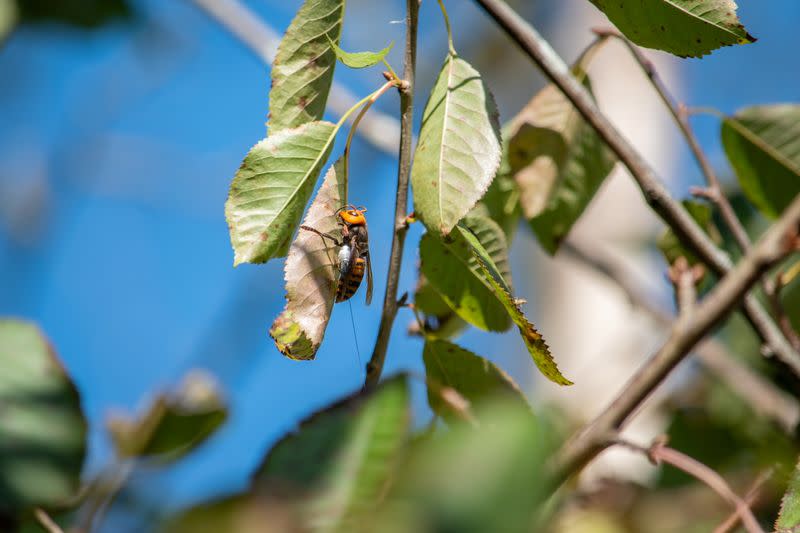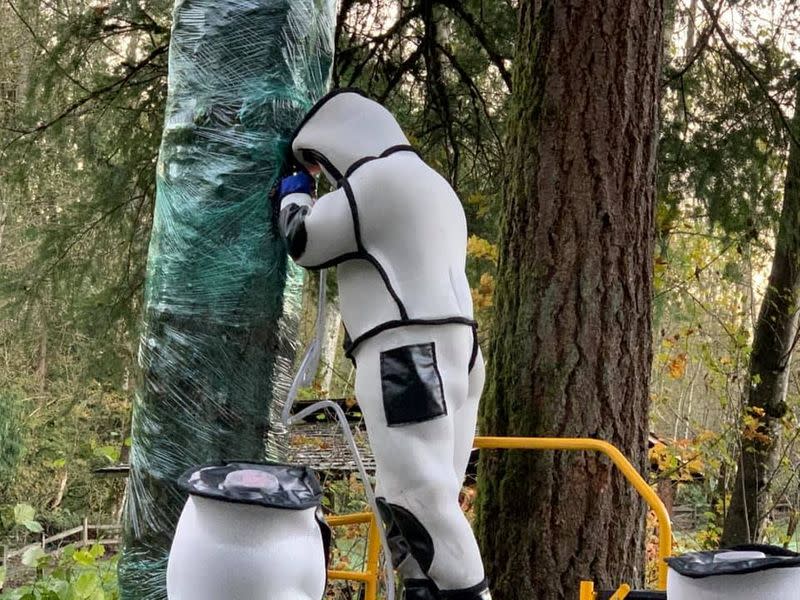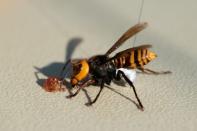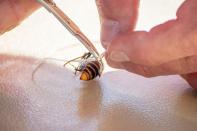'Murder hornet' nest vacuumed out of tree in Washington
(Reuters) - A team of entomologists in full-body protective gear vacuumed Asian giant hornets out of a tree in Washington state on Saturday, eradicating the first nest of the so-called murder hornets found in the United States.
The state's agricultural department said it had spent weeks searching for and trapping the hornets, which attack honeybee hives and could pose a threat to humans, because they can sting repeatedly with venom that is stronger than a honeybee's.
The state's entomologists succeeded by attaching radio trackers to three hornets they had trapped earlier in the week, one of which they followed to the nest, located in a tree near Blaine, Washington, on Thursday.
They returned on Saturday to make the extraction.
"Got 'em. Vacuumed out several #AsianGiantHornets from a tree cavity near Blaine this morning," the agriculture department said on Twitter, adding that more details would be provided at a news conference on Monday.
The stinging hornet, the world's largest, can grow as large as 2-1/2 inches (6.4 cm) in length and is native to Southeast Asia, China and Taiwan. It was first discovered in the United States in December by a homeowner in Blaine.
Aside from the danger to humans, the hornet presents a threat to agriculture and the apiary industry, officials have said, because it is a known predator of honey bees, with a few of the hornets capable of wiping out an entire hive in hours.
(Reporting by Nathan Layne in Wilton, Connecticut; Editing by Daniel Wallis)

 Yahoo Finance
Yahoo Finance 











